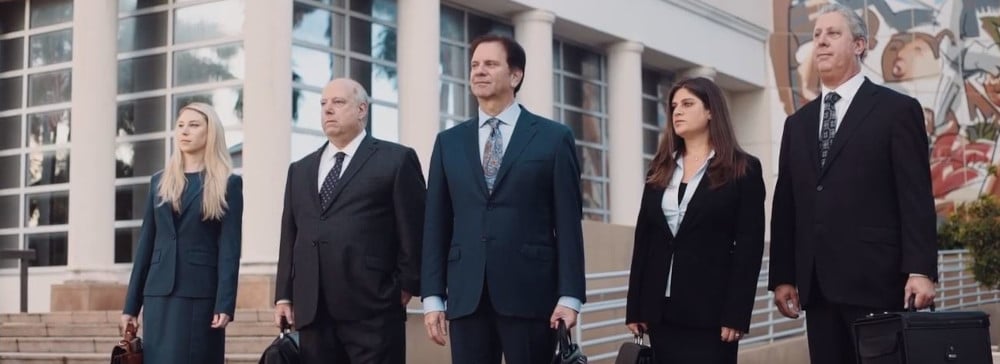Table of Contents
When tragedy strikes a family due to the negligent or reckless actions of another, legal questions will arise that must be addressed even at a time when loved ones are reeling from their loss. These questions often include whether to pursue a claim against a party that bears fault, and how to do so.
At Kogan & DiSalvo, we help families to navigate the legal system in the wake of tragedy with compassionate representation for those who have lost so much, so recently. While there is no way for a court to restore a loved one, holding the responsible party accountable can offer survivors a degree of closure and a chance to move forward with as much of their previous life plans as possible.
When a death results from the fault of another, whether that be a medical professional who missed a condition they had a duty to diagnose or a reckless driver, there are often several types of legal claims that can be made on behalf of surviving family members. These claims include wrongful death claims and survival actions, and a fatal incident may create both causes of action. While there are issues that often overlap, these are separate claims for different damages.

In Florida, a claim for wrongful death must be based on a death that resulted due to someone else’s negligence, wrongful act, or violation of a contract or warranty. This claim can be made by the decedent’s personal representative. A personal representative performs a role similar to executors of estates in other jurisdictions – they have the authority and duty to collect the decedent’s assets, pay their liabilities, and distribute the estate to beneficiaries.
Personal representatives can be an individual of 18 years or older who is a resident of Florida at the time of the decedent’s death, a bank, or a trust company, and can be chosen by the decedent, or appointed by the court.
Wrongful death claims are an attempt to compensate families financially for their loss. This includes economic losses, such as funeral expenses, or the wages or services the deceased provided, as well as non-economic losses, like the loss of their guidance to their children or support to their spouse.
A survival action can also be filed by the personal representative of the decedent. In a survival action, the decedent is the victim rather than the family that is losing the financial and emotional support of a loved one, and the cause of action “survives” their death and is transferred to a relative. This allows a qualifying relative to “step into the shoes” of the decedent for the purpose of pursuing their legal rights.
This will allow a surviving family member to claim the damages for the time between the accident or incident that formed the cause of action until the death of the decedent, collecting the damages that they would have been due had they been able to pursue the case themselves. Much of these damages will depend upon how long this period was. However, even a short time between the accident or incident and death of the decedent can result in significant damages accruing, depending upon the circumstances.
The compensation for a survival action will depend upon the underlying cause of action, which is often negligence. Damages for this cause of action can be economic, non-economic, and punitive.
Economic damages are the straightforward price tag tallies, with the most complicated aspect often being proving future damages. This can include:
Non-economic damages can be subjective and nuanced, and calculating these correctly can greatly benefit from a knowledgeable and experienced attorney. These damages are the intangibles that are lost in an accident or incident, such as the loss of one’s feeling of comfort and security while driving after a bad accident. In this example, someone whose livelihood is dependent upon driving, i.e., a taxi driver, may have a better subjective argument than someone who very infrequently drives.
Non-economic damages can include:
Punitive damages are typically the most difficult to obtain. This is because, while other damages are proven to the standard of a “preponderance of the evidence,” meaning in essence “more likely than not,” punitive damages require that the plaintiff demonstrates through “clear and convincing” evidence that the defendant acted intentionally or in a grossly negligent way.
Punitive damages are awarded as a punishment against a defendant who acted particularly egregiously. Though rare, when punitive damages are awarded, they are typically for significant sums that are often larger than economic or non-economic. Much like with non-economic damages, these damages have much room for argument, i.e., were someone’s actions negligent, or grossly negligent?
The courts in Florida will typically require a plaintiff to choose between the damages of either a wrongful death suit or survival action, even though they can both initially be pursued. This necessitates carefully weighing what damages are possible in each, and where attorney resources would be best deployed between the two potential claims.
Many circumstances can lead to a family experiencing a tragic loss. However, the realities of contemporary American life have led to certain types or causes of catastrophic injuries being more likely than others. A catastrophic injury is one that has a devastating impact on a victim, often leading to the permanent and/or total disability or death of the victim.
Some of the most common causes of survival actions and wrongful deaths include:

In the wake of the tragic loss of a loved one, a knowledgeable attorney can determine whether a wrongful death or survival action lawsuit can be filed, and counsel surviving family on how best to move forward with either claim.
Because of the typically high amount of damages at stake, insurance companies and at-fault parties will often dedicate major resources to minimize, deny, or delay claims as much as possible. Because of the complications in calculating damages, negotiating with insurance, and other aspects of settlements and litigation, it makes sense to speak with a Stuart wrongful death attorney who practices specifically in this field of law. Call the dedicated team at Kogan and DiSalvo today for a free, confidential consultation.
If you are injured and unable to come to us,
our attorney will come to you - there is no charge for us to do so.